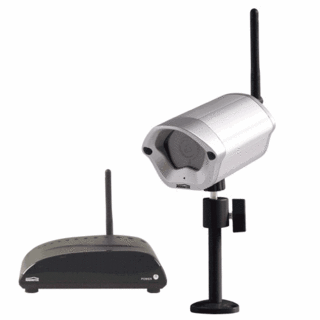For the past year, Eastern European-based hackers have been systematically exploiting known Windows NT vulnerabilities to steal customer data, according to reports from the FBI and SANS Institute.
Published:
13 March 2001 y., Tuesday
More than a million credit cards have been taken and more than 40 sites have been victimized to date. According to SANS Institute, The Center for Internet Security will be releasing Patchwork, a scanning utility that that automatically checks systems for the vulnerabilities and also looks for files the FBI has found present on many compromised systems.
The tool was developed for the FBI by Steve Gibson of Gibson Research. The Center's tools are normally available only to members, but because of the importance of the problem, the Center agreed to make it available to all who need it.
Patchwork will scan servers for signs of files left behind by intruders, as well as the presence of a set of known hacking tools. The free utility will also check the system to make sure it is running all the latest security patches from Microsoft.
The FBI and Secret Service Thursday released forensic information from ongoing investigations because of the importance of the attacks. According to the data, the National Infrastructure Protection Center (NIPC) has been coordinating investigations into a series of hacker activities that specifically target U.S. computer systems associated with e-commerce or e-banking.
The hacking activities initiated from Eastern Europe, specifically Russia and the Ukraine, and have penetrated U.S. e-commerce computer systems by exploiting vulnerabilities in unpatched Microsoft Windows NT operating systems.
Šaltinis:
internetnews.com
Copying, publishing, announcing any information from the News.lt portal without written permission of News.lt editorial office is prohibited.
The most popular articles
Software company announced new structure_ of it_s business.
more »
 Just a few weeks ago, the world's tiniest video camera was as small as a grain of rice. Today, the world's NanoEst camera is even smaller.
more »
Just a few weeks ago, the world's tiniest video camera was as small as a grain of rice. Today, the world's NanoEst camera is even smaller.
more »
 During the experiment two research groups managed to overcome a symbolic 100 TB/s optical fiber data transmission speed limit.
more »
During the experiment two research groups managed to overcome a symbolic 100 TB/s optical fiber data transmission speed limit.
more »
 Apple’s long–awaited online storage service for iTunes could be named iCloud, if only rumours are to be believed.
more »
Apple’s long–awaited online storage service for iTunes could be named iCloud, if only rumours are to be believed.
more »
 The founders of video-sharing site YouTube have bought bookmarking service Delicious from Yahoo.
more »
The founders of video-sharing site YouTube have bought bookmarking service Delicious from Yahoo.
more »
 The successful raid by hackers on Sony’s PlayStation Network is already being ranked among the biggest data thefts of all time.
more »
The successful raid by hackers on Sony’s PlayStation Network is already being ranked among the biggest data thefts of all time.
more »
 Apple has denied that its iPhones and 3G iPads have been secretly recording their owners' movements.
more »
Apple has denied that its iPhones and 3G iPads have been secretly recording their owners' movements.
more »
 Customers who have waited nearly 10 months for the white version of the iPhone 4 won’t have to wait much longer. The Great White iPhone 4 is finally here.
more »
Customers who have waited nearly 10 months for the white version of the iPhone 4 won’t have to wait much longer. The Great White iPhone 4 is finally here.
more »
 Researchers at Georgia Tech University are teaching a robot the basics of dialogue. Named "Simon", the robot has already been taught how to attract a person's attention but eventually, it's hoped he'll be able to interact and converse with humans in daily life.
more »
Researchers at Georgia Tech University are teaching a robot the basics of dialogue. Named "Simon", the robot has already been taught how to attract a person's attention but eventually, it's hoped he'll be able to interact and converse with humans in daily life.
more »
 3D? Terribly lame when it's tossed into devices as a bullet point feature. Trimensional for iPhone takes a picture of your face and maps your mug in a 3D model.
more »
3D? Terribly lame when it's tossed into devices as a bullet point feature. Trimensional for iPhone takes a picture of your face and maps your mug in a 3D model.
more »
 The European Union is to investigate whether internet service providers (ISPs) are providing fair access to online services.
more »
The European Union is to investigate whether internet service providers (ISPs) are providing fair access to online services.
more »